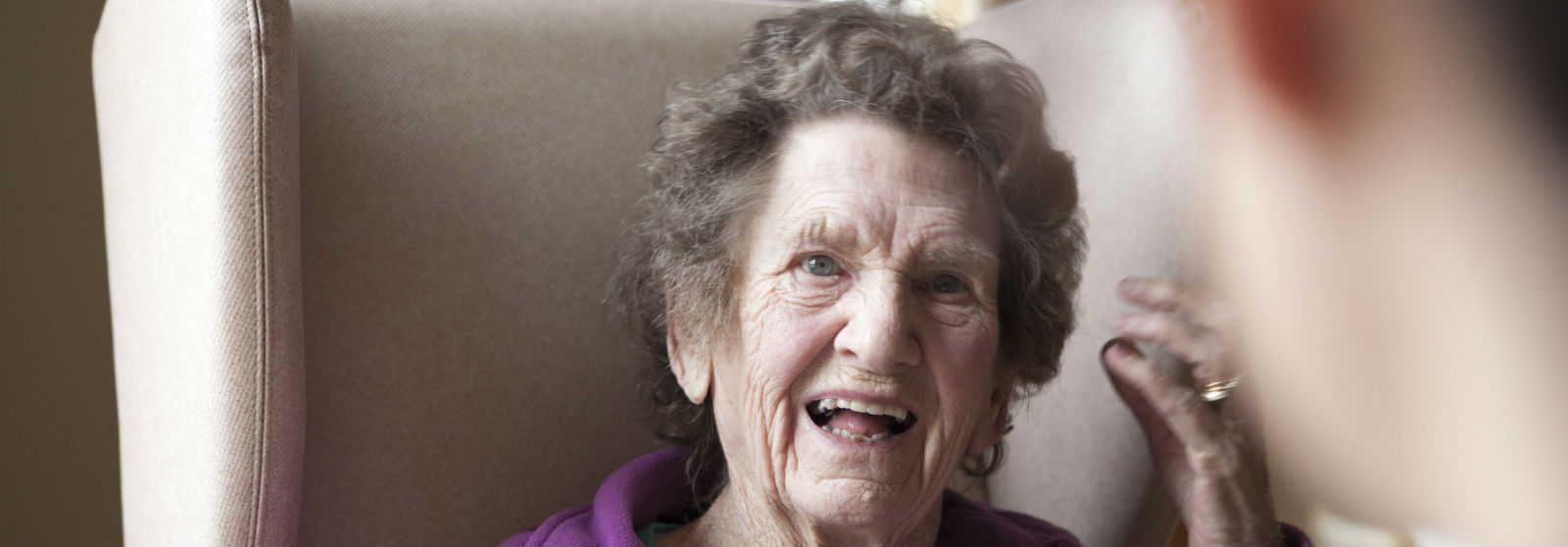
Video-calls using new technological devices are being used with older people in care environments across Devon and Cornwall to reduce loneliness and isolation, thanks to a PenCLAHRC-funded PhD project.
Sonam Zamir, a PhD student at PenCLAHRC, and Professor Ray Jones from Plymouth University have been working with care homes and hospitals since April 2015 to help older people get set up with Skype.
The Skype on Wheels project means older people can now stay better connected with distant relatives without getting out of bed, or needing to learn a new technology.
A Skype on Wheels device, developed by Professor Ray Jones and Plymouth University design students, is a simple, cost effective mechanism that can be wheeled by staff to an older person’s bedside, to take a call using a handset. The device acts as an equivalent to telephone calls but also allows the older person to see their loved ones. It is able to provide a much larger screen than a mobile phone and on a face-level stand.
BT Cornwall, in collaboration with the Skype project, donated Skype TV boxes, providing an even larger screen for those with visual impairments. Sentab TV, a new technology that provides free video-calls, photo- and video-sharing and access to online social communities, was recently added to the project.
Sonam said:
“Research shows that loneliness and isolation among older adults increases the risk of death. Older people in care homes can be lonely with insufficient family contact. This is especially the case for those with dementia.
“Care homes involved in the project are now able to use video-calls to reconnect families, enjoy monthly Skype quizzes with other care homes and weekly Skype call sessions with pupils at Plymouth's Stoke Damerel Community College, all in an attempt to reduce loneliness.”
The researchers are now looking to add more care sites to make use of these exciting new technologies. Families that have an elderly relative in care are also encouraged to take part.
More detailed information about the project can be found on the project page. To find out more or express an interest in taking part, please contact Sonam Zamir via email.
